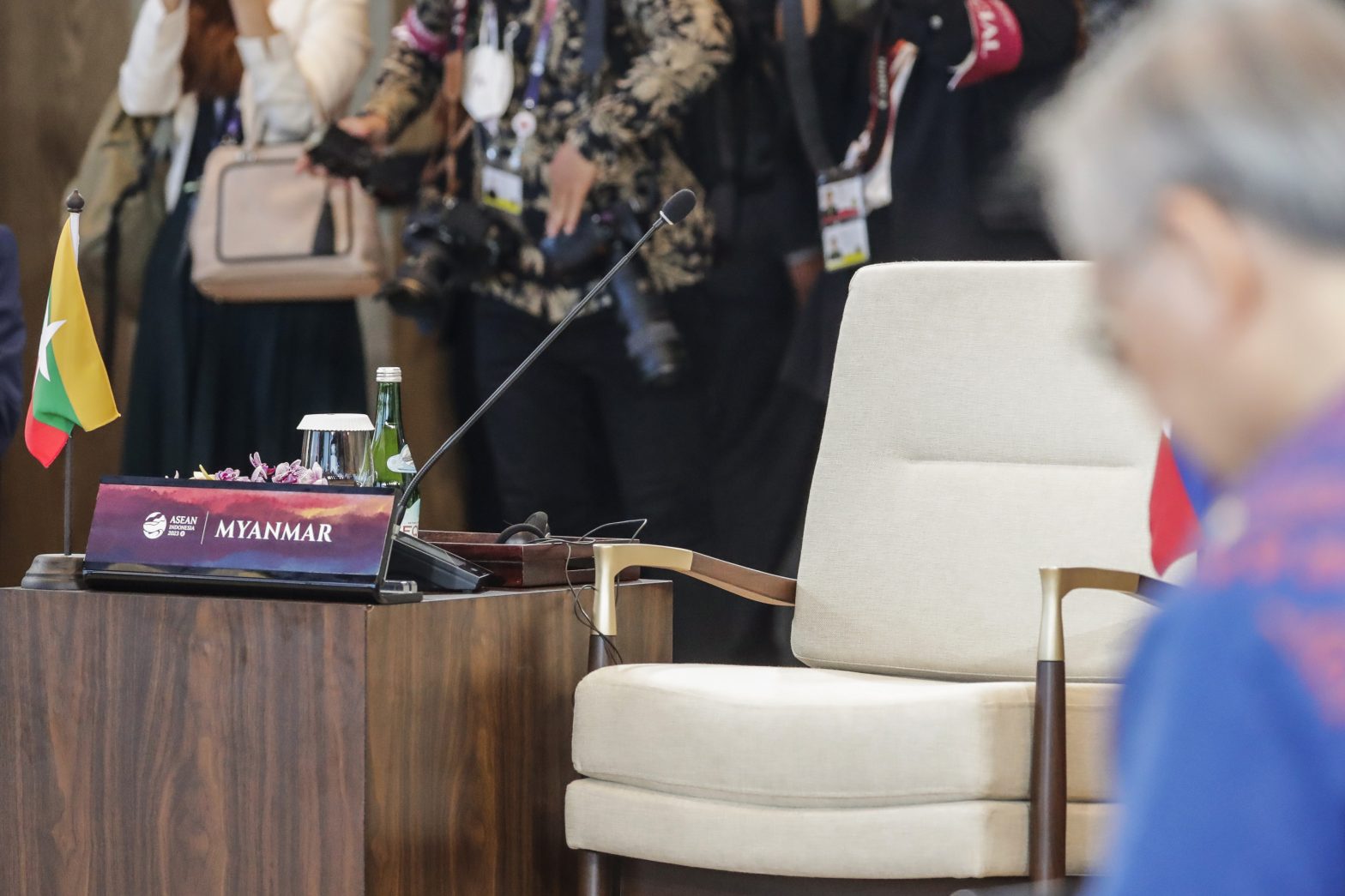The Path Forward for Myanmar’s Spring Revolution
COMMENTARY

The Spring Revolution in Myanmar has been a remarkable display of resilience and determination since the military coup on Feb. 1, 2021. For more than two years, diverse resistance groups have united with a common objective: to dismantle military rule and establish a federal government.
However, as time passes, the pressing question lingers: When and how will this goal of ending military rule be achieved?
To shed light on the current reality, it is imperative to examine the present circumstances and roles played by key stakeholders in Myanmar. Let us first delve into the resistance groups and the National Unity Government. Over the past two years, the Spring Revolution forces have emerged as a formidable collective, capturing the attention of both domestic and international observers.
Shifting our focus to international actors, it becomes evident that China, Russia and India stand as the primary supporters of the military junta.
China, in particular, exhibits a keen interest in conducting business as if it were its own country, while Russia and India prioritize exclusive arms trading arrangements with Myanmar.
The United Nations and the Association of Southeast Asian Nations lack the necessary authority or enforcement mechanisms to exert significant pressure on the military junta. Conversely, the United States and its allied countries have consistently extended support to the resistance groups since the inception of the military coup.
The recognition and assistance provided to the NUG and resistance groups under the BURMA Act, which passed in December 2022, have dealt a significant blow to the junta. This act solidifies the U.S. commitment to aiding the restoration of civilian governance in Myanmar and pursuing accountability for human rights violations.
Despite the growing momentum of the resistance forces, many analysts predict that overthrowing the regime this year remains unlikely. These revolutionary forces still face certain weaknesses, including the need for more arms and a unified chain of command necessary for synchronized attacks.
While the international community plays a crucial role in Myanmar’s crisis, it is ultimately the people of Myanmar who will determine the fate of their country.
At present, the resistance forces are left with two options: Option one entails maintaining the “status quo” and continuing the fight to dismantle the junta, albeit with an uncertain timeframe. However, even if this goal is achieved, there is no guarantee that another coup won’t occur in the long run. Option two involves seeking support from the United States to oust the junta.
Following option two, one approach could be to propose the establishment of a U.S. naval base on one of Myanmar’s islands. This strategic move would offer long-term benefits, fostering a comprehensive collaboration with the United States and safeguarding Myanmar from potential domination by China, Russia or India while ousting the military junta.
In addition, there would be a multitude of advantages: For the United States, such a move would position the country as a superpower and a dominant force, countering China’s influence, emphasizing the advancement of economic interests, countering Beijing’s aggressive and coercive actions, sustaining key military advantages and vital security partnerships, providing robust re-engagement in the U.N.’s system, and taking a firm stance against human rights violations by Chinese authorities.
It has the potential to foster economic growth, implement developmental projects, bolster regional stability and enhance bilateral cooperation.
For Myanmar, inviting foreign direct investment from the United States and Western countries would serve as a catalyst for overcoming economic challenges swiftly, providing numerous opportunities, including rare earth mining and petroleum businesses, which could be mutually beneficial for both nations.
However, it is imperative that such a venture be approached with careful consideration and comprehensive evaluation of potential risks and long-term implications.
The establishment of a U.S. base should be accompanied by robust diplomatic dialogue, respect for Myanmar’s sovereignty and a commitment to shared values of democracy, human rights and development.
As the global geopolitical landscape continues to evolve, seizing opportunities for mutually beneficial partnerships becomes crucial. The proposal of a U.S. base in Myanmar represents a pathway that could bring about positive change for both nations, paving the way for economic prosperity, regional stability and strengthened diplomatic ties.
Contemplating the path forward, the responsibility essentially lies with the resilient resistance groups, including the NUG, to devise groundbreaking ideas that can shift the tides in their favor.
The clock is ticking, and decisive action is required to secure a brighter future for Myanmar — one that upholds democratic principles, human rights and the aspirations of its people.
Dr. Dean Kyne serves as associate professor and Disaster Studies Program coordinator in the Department of Sociology at the University of Texas Rio Grande Valley. The views expressed here are his personal views and do not reflect the university he serves. Kyne’s full biography and contact information are available here.
























